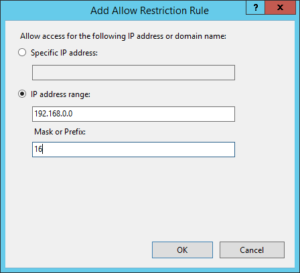netstat can be used to figure out what program is using a port.
$ netstat -nlp
Active Internet connections (only servers)
Proto Recv-Q Send-Q Local Address Foreign Address State PID/Program name
tcp 0 0 0.0.0.0:22 0.0.0.0:* LISTEN 1096/sshd
tcp 0 0 0.0.0.0:80 0.0.0.0:* LISTEN 1733/apache2
tcp6 0 0 :::22 :::* LISTEN 1096/sshd
Active UNIX domain sockets (only servers)
Proto RefCnt Flags Type State I-Node PID/Program name Path
unix 2 [ ACC ] STREAM LISTENING 6338 1071/gdm-simple-sla @/tmp/gdm-greeter-LvjLQPzT
unix 2 [ ACC ] STREAM LISTENING 5165 1072/X /tmp/.X11-unix/X0 |
$ netstat -nlp
Active Internet connections (only servers)
Proto Recv-Q Send-Q Local Address Foreign Address State PID/Program name
tcp 0 0 0.0.0.0:22 0.0.0.0:* LISTEN 1096/sshd
tcp 0 0 0.0.0.0:80 0.0.0.0:* LISTEN 1733/apache2
tcp6 0 0 :::22 :::* LISTEN 1096/sshd
Active UNIX domain sockets (only servers)
Proto RefCnt Flags Type State I-Node PID/Program name Path
unix 2 [ ACC ] STREAM LISTENING 6338 1071/gdm-simple-sla @/tmp/gdm-greeter-LvjLQPzT
unix 2 [ ACC ] STREAM LISTENING 5165 1072/X /tmp/.X11-unix/X0
If you have a lot open then grep can be used to only find what you are looking for
netstat -nlp|grep :22
tcp 0 0 0.0.0.0:22 0.0.0.0:* LISTEN 1096/sshd
tcp6 0 0 :::22 :::* LISTEN 1096/sshd |
netstat -nlp|grep :22
tcp 0 0 0.0.0.0:22 0.0.0.0:* LISTEN 1096/sshd
tcp6 0 0 :::22 :::* LISTEN 1096/sshd
For windows, simply start with


